How English football can sway power and change the future of the European game
Uefa president Aleksander Ceferin faces a vote over proposed statutes, explains Miguel Delaney, with particular focus on the FA, which intends to vote against his demands

Your support helps us to tell the story
From reproductive rights to climate change to Big Tech, The Independent is on the ground when the story is developing. Whether it's investigating the financials of Elon Musk's pro-Trump PAC or producing our latest documentary, 'The A Word', which shines a light on the American women fighting for reproductive rights, we know how important it is to parse out the facts from the messaging.
At such a critical moment in US history, we need reporters on the ground. Your donation allows us to keep sending journalists to speak to both sides of the story.
The Independent is trusted by Americans across the entire political spectrum. And unlike many other quality news outlets, we choose not to lock Americans out of our reporting and analysis with paywalls. We believe quality journalism should be available to everyone, paid for by those who can afford it.
Your support makes all the difference.The Football Association is intending to vote against proposed reforms that could keep Aleksander Ceferin as Uefa president until 2031, potentially creating a rare moment of dissent at the confederation’s Congress in Paris on Thursday.
The Slovenian himself has spoken about how he is being seen as “Kim Jong Un” due to the possible changes, but it is being insisted within the English federation that this is about principles of good governance rather than any individuals.
Although it is privately stressed that there is always space for change in football governance, the FA has been especially concerned about the issue of term limits.
There has been widespread disgruntlement within Uefa since proposed amendments to the statutes were announced. These would preclude Ceferin from changes that mean inherited terms do not count as full terms.
The Slovenian took over from the disgraced Michel Platini after the French official’s resignation in 2016, which would mean the amendments passing could allow the current president to stand again in 2027 rather than step down.
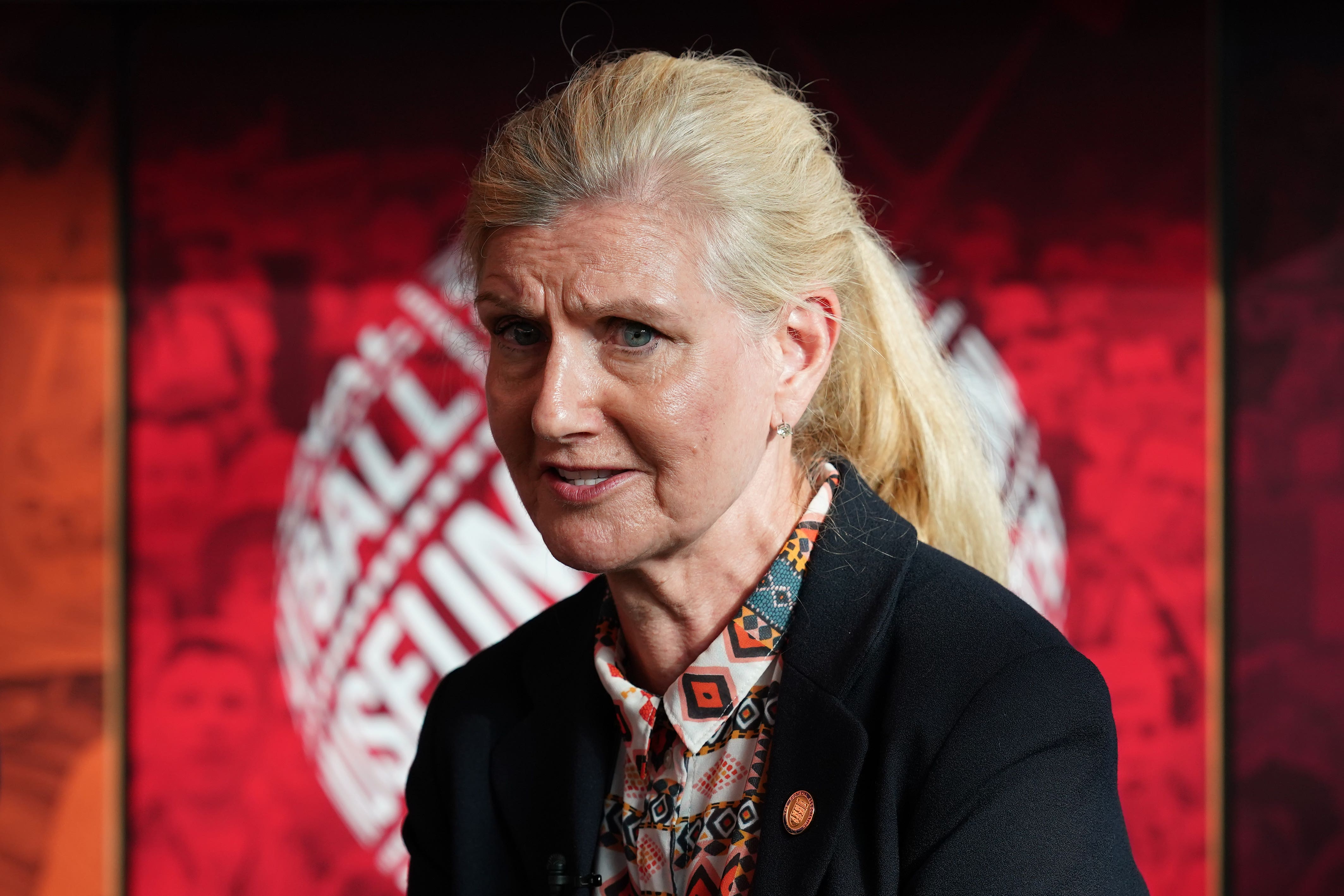
The FA, driven largely by Uefa treasurer David Gill’s strong stance on this, believes this is a red line and consequently intends to vote against the statutes on Thursday morning in Paris.
A further issue is that Uefa are bundling all amendments together, even some of those - like responses to December’s European Court of Justice ruling against the Super League, as well as more progressive steps about representation within the confederation - would usually find full support from the FA.
Some in Paris have interpreted the Uefa hierarchy’s move to put all the proposed amendments together as a way to push through the changes on term limits. The FA made a late attempt to get this separated from the rest of the issues at the Uefa Executive Committee on Wednesday afternoon.
This received a cold response, with the leadership merely saying Congress would decide, while pointing to political procedure. It was said this created an uneasy atmosphere in a meeting that usually involves little debate or discussion. The hope from a group of rebels is that such a huge organisation like the FA coming out against the proposed change should make others follow, but it is expected that there will be only three or four rebels at most.
Meanwhile as the various football associations hold up panels to signal their vote, the tight circle around Ceferin will be watching closely. Those that vote against will be taken note of.
If you are one of those associations, a series of well-placed sources say, your association can lose a lot of power. It is why a heave against Ceferin is likely to falter for the moment, although disgruntlement is growing. That is something that is being said more and more, and with greater frustration. There is another point that is now worth repeating here.
For anyone who thinks this is just dull football politics that doesn’t really matter, think again. It will directly affect what you see on the pitch. It is why the Champions League semi-final won’t feature Leeds United or Valencia anymore, let alone Steaua Bucharest or Celtic.
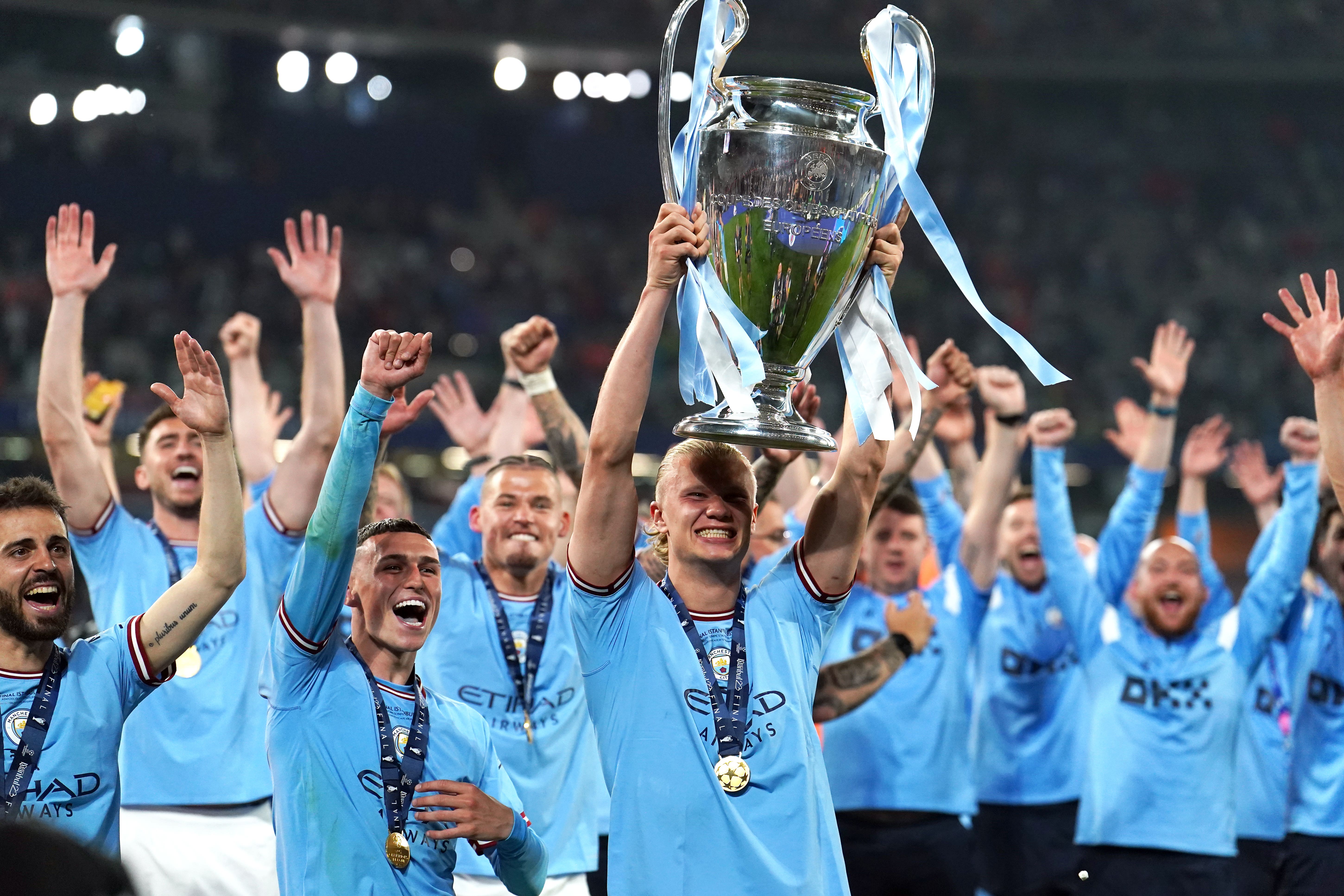
One of the reasons that figures like Ceferin want to stay in such a role is because almost the entire power of the club game is vested in the president. They decide confederation policy in almost a dictatorial way. There is minimal space for pushback or discussion.
As a Slovenian, Ceferin was voted in partly because of the idea he could represent smaller associations and act as a bulwark against the big clubs. His seven years so far have instead seen those same big clubs become an even smaller group but carve out even more power, as the top of the European game becomes less and less competitive.
It points to a fact that should be galling for anyone at Uefa: the federation has overseen a situation where much of the continent’s football has become a wasteland, asset-stripped by the power of the big clubs and – increasingly – the Premier League.
Even the “success” that Ceferin congratulates himself on, fending off the Super League, wasn’t used in any progressive way. It didn’t see any reversion or pushback against such a power. If anything, it only gave Qatar even more power in the club game, since the fallout saw Paris Saint-Germain president Nasser al-Khelaifi become the chair of the European Club Association.
Ceferin of course said recently that he is “not worried about state-owned clubs as long as they respect the rules”.
Uefa v PSG
And yet, on that broad point, there is profound dissatisfaction within European football at how Uefa handled both Financial Fair Play cases involving PSG and Manchester City over recent years. In the first, the French club eventually got off on a technicality, after the FFP investigatory chamber unexpectedly came up with an analysis that put PSG’s deal with the Qatar Tourist Authority far higher than independent companies had valued.
The adjudicatory chamber was so shocked that it led to the unprecedented situation of calling for the investigators to go over it again. PSG appealed that, under the argument that a 10-day deadline had been missed. The view from the adjudicatory chamber side was that the deadline only applied to starting a review, not concluding it. Uefa didn’t even defend their adjudicatory chamber and PSG got off.
Uefa v Manchester City
In the second, City had a Champions League ban overturned on the technicality of a time-barring. A number of questions abound about Uefa’s handling of that, from why they didn’t object to a second judge who was put forward by the Abu Dhabi club given the subjective interpretation of the time-barring, to why they stopped pursuing documents that FFP investigators saw as essential, and which meant the Court of Arbitration for Sport (CAS) could say City could no longer be deemed as not co-operating.
Some of the information from those documents was later leaked by Der Spiegel, including one that appeared to directly contradict evidence given by City director Simon Pearce. Despite all of this, Uefa did not appeal.
That was already a long-term source of aggravation within the confederation but was sparked again at the end of January when Ceferin gave what was seen as a bizarre round of interviews. The Slovenian first told The Daily Telegraph that Uefa knew they were “right” in initially punishing City. When pushed by The Guardian on why they didn’t then appeal, Ceferin said: “Our club financial control body decided. City succeeded with CAS, then, for me, the story was over.”
This is understood to have led to fury from those who worked on that body, since they had nothing to do with that decision. It was Uefa who took on the case at CAS.
That is just another subject that has provoked widespread dissatisfaction with Ceferin. And yet, despite that, such dissent is unlikely to be visible in Paris on Thursday.
That is in large part because of how these events go.
Ceferin to extend Uefa reign?
Even though European football is now facing a number of issues that actively threaten what it looks like – from state ownership to private equity and competitive balance – the main subject at Congress is something that could feasibly allow Ceferin to stay in the role even longer. Is this where the priorities are? On a statute proposing that any executive in place before 2017 is exempted from the idea that inherited terms do not count toward full terms?
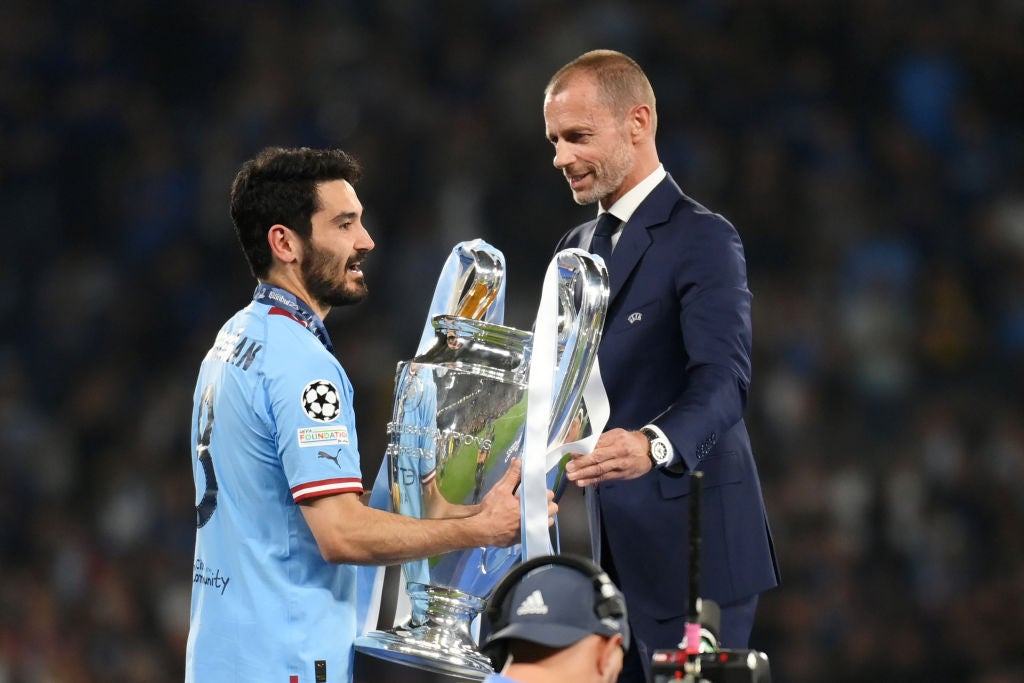
That would mean Ceferin could go until 2031 rather than 2027. That is also why it is still important, even as it looks like such a needless waste of Uefa’s time from a hierarchy that was supposed to go in a different direction to all of this.
Back at the last Executive Committee meeting, before the Euro 2024 draw, Uefa treasurer David Gill stood up and gave an impassioned speech about good governance. There were murmurs of approval from many in the room. Not from Ceferin. The Uefa president was described as agitated while Gill was speaking and abrasive in his response, telling the former Manchester United chief executive that he knows finance but Ceferin knows law.
This is a legal matter, don’t jump in, was the message.
For many in the room, it was worryingly patronising, and of a piece with how Ceferin now insulates from much of Uefa in his increasingly first-class world. The expectation in Paris is that he will not mix with the rest of executives, as he surrounds himself with security. The obvious question is why an otherwise little-known football administrator needs such security? It’s not even like he has been a figure famous for being ridiculed like Fifa president Gianni Infantino. “It’s pure ego,” one executive tells The Independent.
It is also starting to remind everyone of the old Sepp Blatter days at Fifa.
The FA considers its position over Ceferin’s proposed statutes
This is why the last few weeks have seen several member associations discuss voting against Ceferin’s proposed statutes. They are aware there is no chance of the motions failing, but even a show of resistance would be notable, especially for a president voted in without challenge only a year ago. The hope is they could get 10 votes, a real indication of a shift.
Many in European football were looking at the Football Association to lead a charge with a statement. That was both because of the obvious inclination to support Gill and because the English federation feasibly wields such power. They don’t have anyone Ceferin would see as a challenger, and can also be relatively independent.
The Uefa hierarchy has started to lobby potential dissenters. Others would describe this as pressuring. Those who might have voted no are expected to buckle, especially with how the issues to be voted on are bundled together.
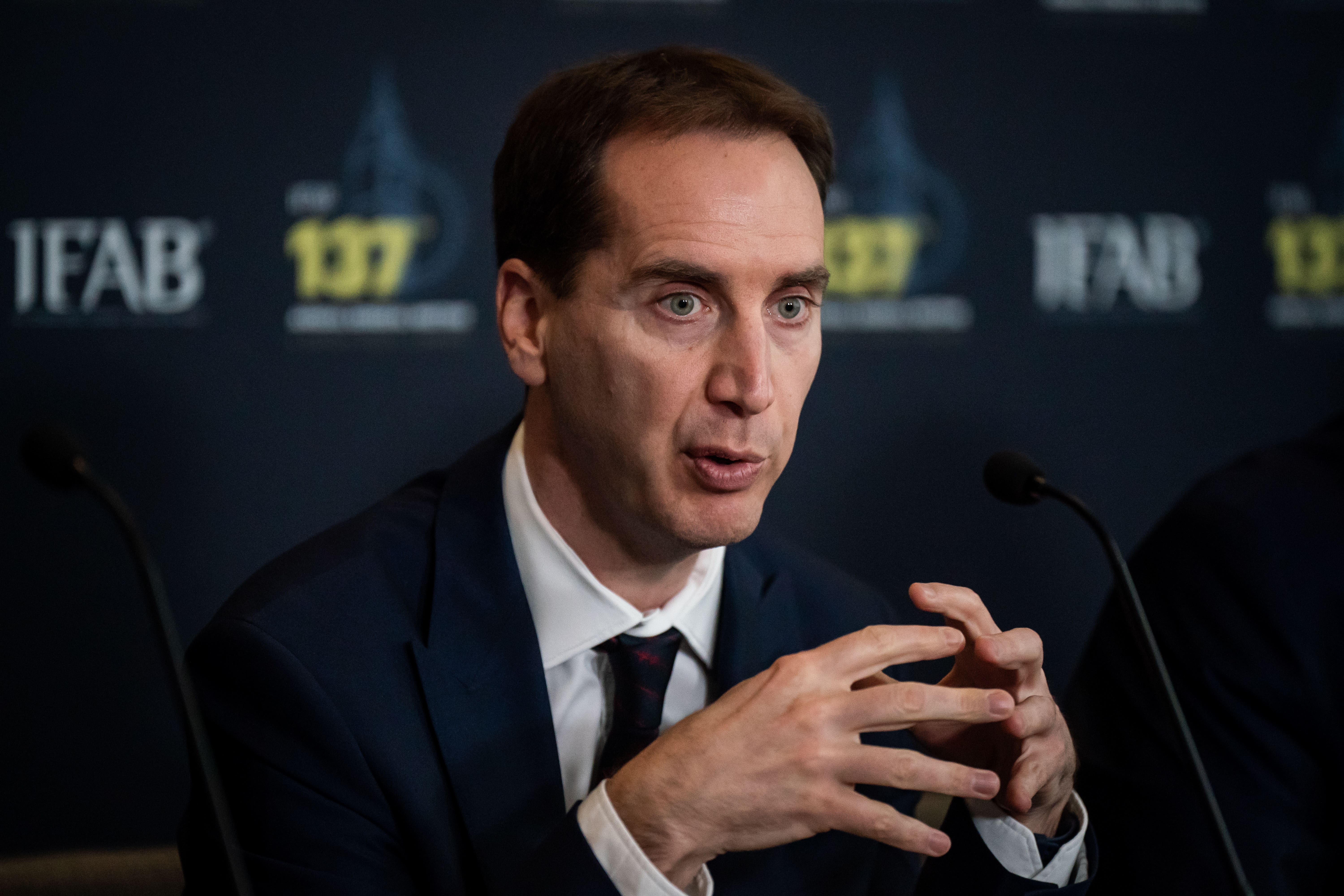
There is now the feeling there will be nowhere near 10. Ukraine will likely vote against them, though, because of Ceferin’s attempt to bring Russian youth teams back into Uefa competition.
The temptation in such situations would be to criticise the federations for not going with the strength of their convictions. The reality is that it could make it worse for their federations in the long run, although that doesn't really apply to the FA.
That is how power lies. That is why the executive presidential model is such a problem for football. Thursday’s executive committee might well be the full portrait of how that works.
There is admittedly another reason for such restraint, that could itself cause problems for Ceferin in the long run.
The Super League factor
The European Union are watching all this, having had their awareness heightened by the European Court of Justice decision on the Super League in December. That was a defeat for A22’s plans. (A22 Sports Management is the company formed to “sponsor and assist” in the creation of the European Super League). And the general feeling in Uefa is there is now no risk from that version of the project.
They are aware there is risk in the medium to long term from other angles, though. That is because of how the ECJ decision specifically scrutinised Uefa and Fifa on good governance. It was similarly noted that neither the European Parliament nor the European Commission issued any shows of support for the football body, despite a desire for that from Uefa.
Ceferin’s attempts to change term limits are viewed as exactly the opposite of good governance, and there was shock in European political circles that Uefa have made a move like this at this time.
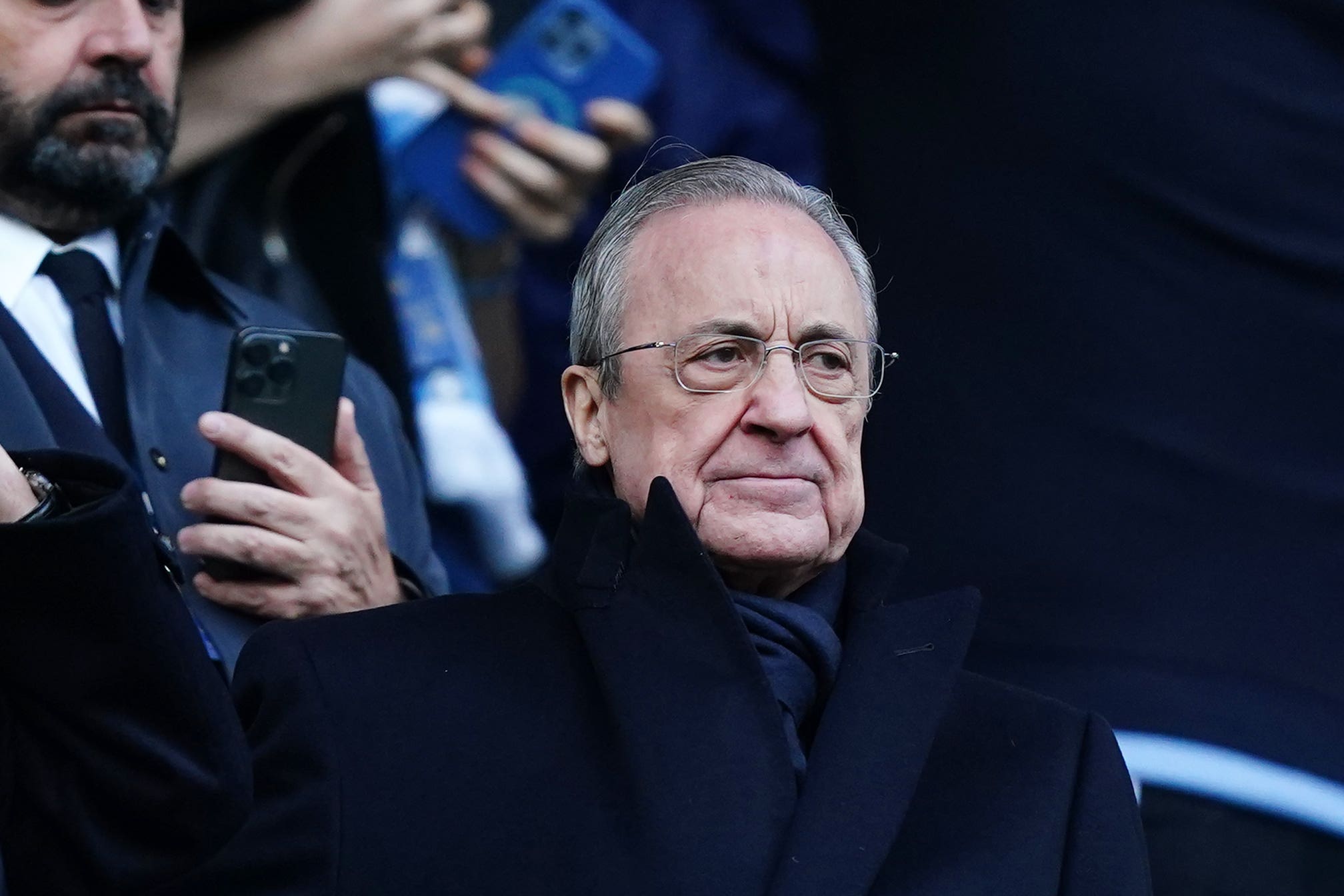
It is also why executives such as Razvan Burleanu have attempted to look at the bigger picture. The Romanian was seen as Ceferin’s most likely challenger, but he has announced he will vote for the statute changes, albeit with the huge caveat of a call for reform.
The feeling is that Uefa is potentially going to be attacked from all sides by possible Super League ideas, so it is better to preserve a form of unity. That unity, however, should involve a move to make Uefa more democratic and less geared towards one individual.
Thursday’s Congress is likely to be a portrait of the opposite. It is likely to be a portrait of one of many problems in European football right now.



Join our commenting forum
Join thought-provoking conversations, follow other Independent readers and see their replies
Comments